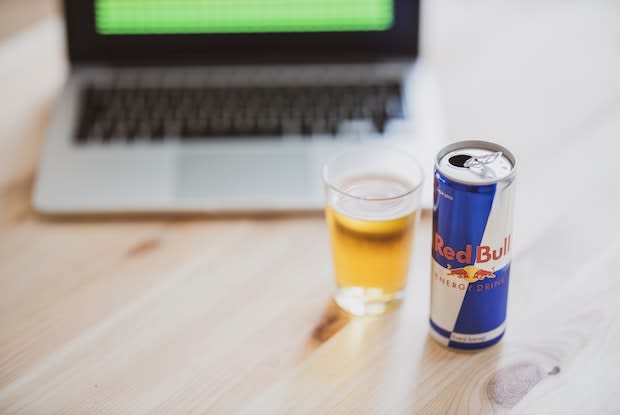Table of Contents
I. Bothersome Bladder Problems
V. Pre-Existing Bladder Problems & Genetics
Bothersome Bladder Problems
Bladder issues can significantly affect a person’s everyday activities. It is essential to determine the problems behind bladder issues so your doctor can make a proper treatment plan. The urinary system is an intricate network, so it may take a few visits to the doctor to determine what type of bladder problem you are experiencing. General bladder problems may cause the following symptoms:
- Inability to hold urine
- Sudden urge to urinate
- Cloudy or bloody urine
- Waking up many times at night to urinate
- Trouble emptying the bladder
The bladder changes as people age and go through life events like pregnancy and menopause. Age may cause several bladder changes, but other risk factors may affect the health of the bladder. Read on to learn more about the most common risk factors for bladder problems. [1] We use our bladders several times a day, and we often take a healthy-functioning urinary system for granted. Problems may begin slowly as we age but may become a serious issue if left untreated. This is because the bladder ages like the rest of the body. As the body ages, the elastic bladder tissues become less stretchy. This tissue becomes tougher, which also causes the bladder walls and pelvic floor to become weaker. If these problems persist, they can make it more difficult to empty the bladder and cause leakage. [2] Both older men and women are likely to have some form of bladder issue, but age is more likely to cause BPH (benign prostatic hyperplasia) in men and OAB (overactive bladder) in women. With BPH, the prostate continues to grow as men get older, putting pressure on the urethra. In this case, your doctor may prescribe Flomax for men or Avodart (dutasteride). [3] OAB and interstitial cystitis are more common in women because menopause and childbirth can affect the integrity of the pelvic floor, causing OAB symptoms like trouble emptying the bladder and leakage. Toviaz may be used for this condition, as well as Vesicare (solifenacin) and generic Myrbetriq. Women are also more likely to get urinary tract infections, which increases the risk of more frequent bladder issues. [4] Obesity: Having a large amount of excess weight on the body is not healthy for anyone. It can increase your risk of heart disease and diabetes but may affect your bladder as well. Researchers have found that excess weight on the abdomen can increase bladder pressure and cause stress urinary incontinence and OAB. It may also cause chronic strain and weakening of the nerves and muscles in the pelvic area. [5] Smoking: Smoking is one of the biggest risk factors for serious bladder problems, especially bladder cancer. People who smoke are twice as likely to get bladder cancer as non-smokers. The chemicals in cigarettes get into the bloodstream and may be filtered by the kidneys into the urine. These carcinogens can damage the bladder wall and increase bladder problems and cancer risk. [6] Diet choices: The above lifestyle risk factors may have a more profound impact on the bladder, but the beverages we consume may also increase bladder issues. Drinking too little fluid throughout the day can lead to a buildup of waste in the urine. Highly concentrated urine can irritate the bladder wall and increase the frequency of urination. Drinking many caffeinated and alcoholic drinks may also irritate the bladder and increase urinary frequency. [7] The majority of bladder issues occur due to age or lifestyle choices, but some people are born with bladder defects that affect them throughout their life. In some cases, the bladder and abdominal wall become fused and leave the bladder's inner lining exposed to other parts of the body. This can cause many problems with the urinary system but can typically be fixed with corrective surgery. [6] If you have had several urinary tract infections and kidney or bladder stones, you are at an increased risk of serious complications like bladder cancer. Bladder stones form when issues like BPH, OAB, or interstitial cystitis make it difficult for the bladder to fully empty. When it cannot empty fully, minerals solidify in the bladder and form bladder stones. Kidney damage from urinary retention can make it easier for bladder infections to form. [3] If you have a family history of nerve problems or abnormalities, you may also be at risk for chronic bladder issues. Interstitial cystitis may occur if there is a defect in the protective lining of the bladder. Another cause is thought to be related to the brain's communication with the bladder. When the bladder fills, it tells the brain it is time to find a restroom, but urination may be affected if this neural connection is off. There is no cure for interstitial cystitis, but your doctor can prescribe generic Elmiron to aid in symptoms. If you feel like you are experiencing unusual bladder issues, talk to your doctor today. [8] The content in this article is intended for informational purposes only. This website does not provide medical advice. In all circumstances, you should always seek the advice of your physician and/or other qualified health professionals(s) for drug, medical condition, or treatment advice. The content provided on this website is not a substitute for professional medical advice, diagnosis, or treatment.
Age
Gender

Lifestyle Factors

Pre-Existing Bladder Problems & Genetics
